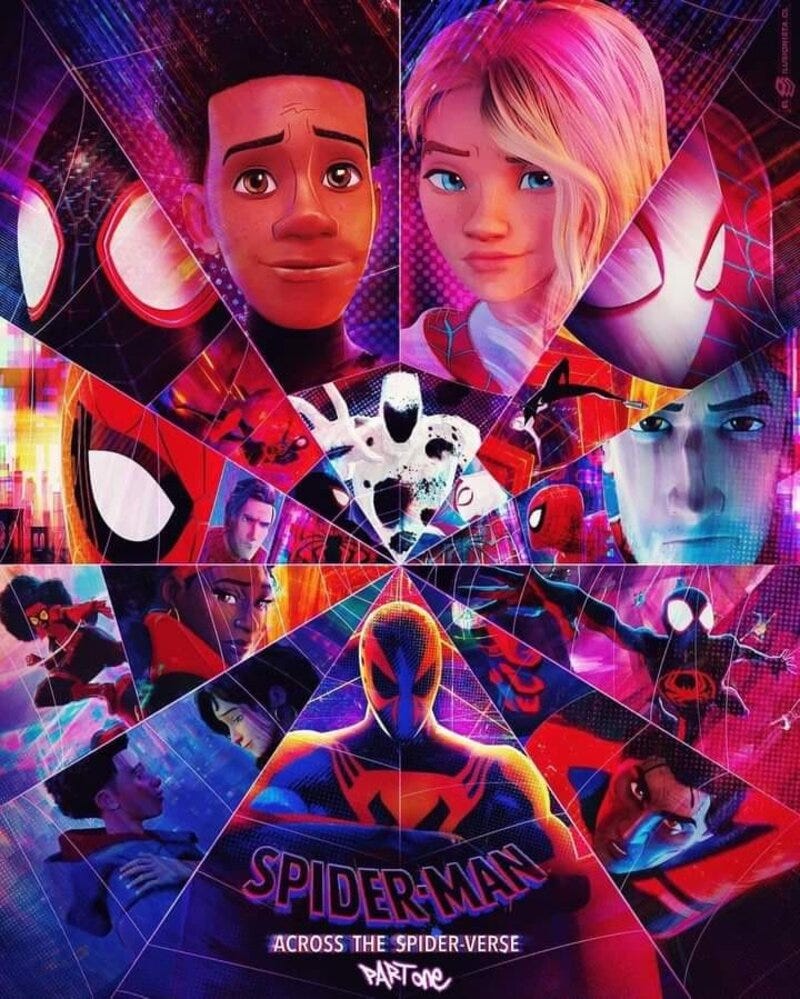
I’m really picky with sequels because I keep Shrek 2 (2004) as the threshold for what a good sequel should be and I’m happy to say that Spider-Man: Across The Spider-Verse Part One is honestly giving my favorite ogre a run for his money.
We all know Spider-Man. In some form or another, from Sony or from the MCU or from the comic canon, we know the webbed slinger.
Perhaps a little too well.
Which is a testament to the lovability of New York’s Spider-Man.
We know his back story. His Uncle Ben, the Daily Bugle. The Green Goblin, Doc Ock, Mysterio.
We know this character.
And Directors Joaquim Dos Santos, Kemp Powers, and Justin K. Thompson utilized that to weave a narrative that is familiar yet unique in the established lore of your friendly neighborhood Spider-Man.
Canon
I think the funniest shit about canon is how biblical in nature it is. Canon originally refers to what is established and given in the bible. The Catholic Canon or the Christian Canon or what have you.
It’s to mean something that is generally accepted, “a collection or list of sacred books accepted as genuine,” according to the Merriam-Webster dictionary or “things basically considered true in the story,” according to Urban Dictionary.
It is what we have come to learn and accept as truth. For fiction, it is a crafted narrative, a set of rules and expectations we have for something to check off in order to be considered as part of a larger meta narrative.
In Across the Spider-Verse (2023) [and even in Into the Spider-Verse (2018)], we see the origin story of Spider-Man distilled into its basest components. Spider-Man is Spider-Man because of that radioactive spider bite. Because Uncle Ben dies and he learns about responsibility. Because he has this power and he chooses to do something good with it.
These canon events push Peter/Spider-Man to become a masked vigilante, but it should also be noted that its his good and unflinchingly unselfish character that makes him the hero we have cheered for since 1962.
All those experiences make up the expected Spider-Man experience. To stray from it serves as a disservice to the history established and unfamiliar ground that might shatter the foundations many fans find comfort in.
The greatest weakness in remakes of beloved characters, is the failure of repetition. The story isn’t any different from the last time it was made.
In ATSV, we are once more spoon-fed the lore but it’s done in what I can only describe as a very classy way. It plays on our expectations and delivers it in a fresh new way. An origin story becomes a montage. Canon events are placed at crucial points in the story but it doesn’t feel out of place.
The rhythm and flow of story beats meshes well together.
This is why remakes in movies struggle to find footing with an original voice that still somehow pays homage to the source material, but why comic books with their multiple runs and hero iterations has been able to stretch this story of canon and subversion to its limits.
Subversion

We cannot talk about ATSV’s canon without also talking about how it subverts it.
The respect for the canon is palpable. You can see it in the wide shots of the Spidey HQ, in the layered musical refrains, in every character design.
In order to subvert something well, you have to understand what you are trying to subvert. Which, in this case, is the Spider-Man canon.
Good subversion happens when you expect something to happen because that is what always happens— and then something else happens, or the canon event happens, just not in the way you are expecting.
Miles getting bitten in the first Spider-Verse movie is a canon event.
His lack of reaction is subversive and hilarious.
Side-by-sides of Miles discovering his Spider powers alongside the comic panels from The Amazing Fantasy #15 (Spider-Man’s first introduction to the world) is beautifully rendered for a unique cinematic experience.
In ATSV, Miles and Gwen accidentally recreating the upside-down-Spidey-and-MJ-Kissing-Scene is iconic. But then subverted.
The idea of the canon event to make Spider-Man Spider-Man is well established and utilized as a story device in this movie to a fantastic degree. Uncle Ben dying. The captain of the police force getting killed. Losing Gwen Stacy.
We touch on each of these canon events in some way or another and they play so well with this idea that this is the canon and how things are meant to be. Life cannot exist outside of this predetermined fate, and to rebel against it is a surefire retaliation from god. Which is very Calvinistic and a-leopard-doesn’t-change-its-spots kind of mentality.
Miguel O’Hara (Oscar Isaac) has seen firsthand how subverting the canon and trying to reclaim his own fate backfires and he is trying to keep Miles (Shameik Moore) from doing the same.
There is no malice. There is no villain.
There is just the expectation of Spider-Man to be Spider-Man, with every heartache and trauma and hurt that we expect the character to suffer through.
The real villain
is us.
Because of the community expectation of Spider-Man, no matter the universe, no matter the comic run, to be the tragic hero.
Spider-Man always chooses to save others rather than to help himself.
In every universe. In every retelling.
Spider-Man is unselfish to the point of personal detriment.
We want our Spider-Man to embody all that is good and kind and hopeful about the world, and those quippy comebacks and that good soul seems to stem from his desire to keep people from suffering in the way he did.
So we, communally, though perhaps unknowingly, are forcing the canon on Spider-Man. That’s why the subversion feels so personal and freeing:
Our Spider-Man finally has the chance to fight for himself. And no matter what, our hearts will always go out to New York’s friendly neighborhood Spider-Man.





